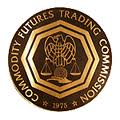The US Commodity Futures Trading Commission (CFTC) is continuing to process a number of applications by institutional firms and clearing houses which have requested registration as a Swap Execution Facility (SEF), in accordance with the ruling set out in the Dodd-Frank Wall Street Reform Act that determines that reporting, clearing and settlement functions relating to OTC derivative products should be carried out by tightly regulated SEFs, in order to provide greater pre and post-trade transparency.
A Trilogy of SEF Approvals
On Friday, the CFTC announced that it has approved three more entities’ applications for registration with the regulator as a SEF on a temporary basis, following in the footsteps of Bloomberg, which on July 31st this year, became the first SEF.

One such firm is MarketAxess SEF Corporation, whose application for temporary registration was approved following its submission on July 12 this year. The core business of MarketAxess is the provision of an electronic Trading Platform , that enables fixed-income market participants to efficiently trade corporate bonds and other types of fixed-income instruments.
MarketAxess has been gradually expanding its functionality to offer a comprehensive range of trading protocols, including request for quote/market (RFQ/RFM), click-to-trade (CTT) and a central limit order book for CDS trading over a three year period, and according to a commercial statement made by Rick McVey, the company’s CEO, in July last year, “is ideally positioned to facilitate regulatory objectives to create a more transparent and competitive OTC swaps market.”
GFI Swaps Exchange LLC, represents another firm which received approval from the CFTC for its application for temporary registration as an SEF. The company’s application conveyed to the CFTC, that GFI Swaps Exchange had established rules governing the operation of its SEF operations, including rules regarding the operation of its trading platform.
The rules set out the framework, for the submission of orders and described how the trading platform operates and that in particular, the company has an order book.
The rules also permit voice execution, as well as workup sessions, which are called join-the-trade or “JTT” sessions.
Also set out were the procedures for entering into trades through a Request for Quote (“RFQ”) mechanism. Under Rule 509, directions to effect a required transaction may be given to an employee of the company, who will execute the directions in the manner that the employee deems appropriate, taking into account Liquidity , the size and price of the order or RFQ, the credit arrangements of the parties to the trade, and such other factors as such employee deems relevant in the circumstances.
The third firm whose application was approved on Friday is SwapEx, a subsidiary of financial giant State Street, which provides trading platform facilities to derivatives traders, and operates a central limit-order book with anonymous trading for liquid derivative instruments.
All three companies are United States corporations and will be required, as will all future temporarily and fully registered SEFs, to demonstrate continued compliance with all applicable provisions of CFTC regulations, and any future regulations, amendments, guidance and interpretations issued by the CFTC, in order to obtain and maintain permanent registration.











